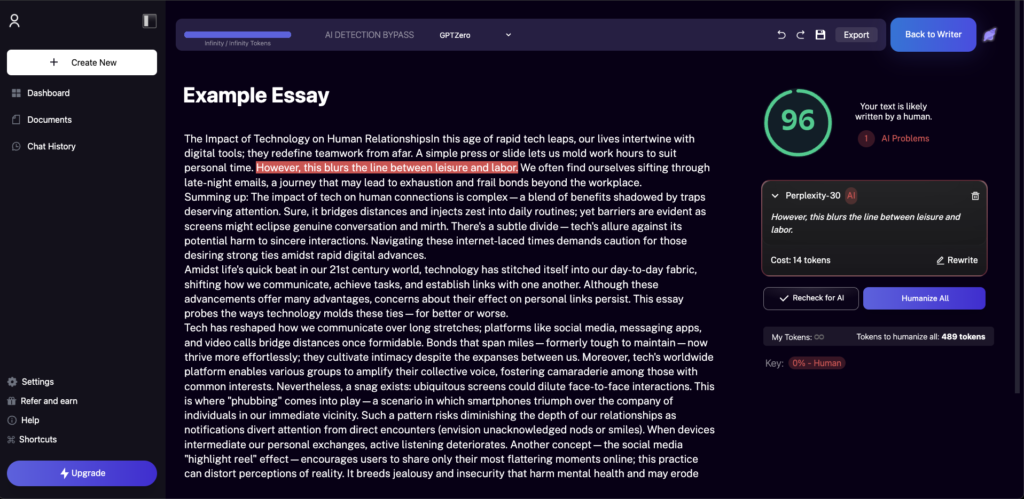Welcome to our blog on unique argumentative essay topics! Are you tired of writing about the same old subjects? Do you crave something fresh and exciting to stimulate your mind and engage your readers? Well, you’re in luck! In this guide, we will explore a range of unique argumentative essay topics that will not only captivate your audience but also challenge your own intellect.
Gone are the days of mundane essays on generic topics. It’s time to break free from the mold and delve into the realm of thought-provoking and unconventional ideas. Whether you’re a student searching for an essay topic that will impress your professor, or a writer looking to expand your repertoire, we’ve got you covered. From the impact of social media on our mental health to the ethics of gene editing, our carefully curated list of unique argumentative essay topics will inspire you to think outside the box and approach your writing from a fresh perspective.
But wait, there’s more! Not only will we provide you with an array of captivating essay topics, but we will also guide you on how to structure essay format to ensure maximum impact. So, get ready to embark on an exciting journey of intellectual exploration as we uncover the most intriguing and thought-provoking unique argumentative essay topics. Let’s dive in and discover the limitless possibilities that await!
What Is An Argumentative Essay?

An argumentative essay is a unique and captivating form of academic writing that aims to persuade the reader to adopt a particular position on a controversial topic. Unlike other essay types that predominantly focus on providing information or analyzing a subject, the argumentative essay prompts the writer to take a stance and present compelling evidence, logical reasoning, and persuasive language to support their viewpoint.
Distinguishing Argumentative Essays
One of the key characteristics that sets argumentative essays apart from other types of essays is their emphasis on presenting a clear and concise thesis statement. The thesis statement serves as the backbone of the essay, guiding the writer’s arguments and providing a roadmap for the reader. By stating a specific claim or position, the writer sets the stage for a thought-provoking and engaging discussion.
Another distinguishing feature of argumentative essays is the incorporation of counterarguments. While it may seem counterintuitive, successful argumentative essays not only present their own viewpoint but also anticipate and address opposing arguments. By acknowledging alternative perspectives and effectively refuting them, the writer demonstrates a deep understanding of the topic and strengthens their overall argument.
The Importance of Argumentative Essays
Argumentative essays play a crucial role in shaping critical thinking and analytical skills. By engaging in rigorous research, evidence gathering, and logical reasoning, students are able to develop a deeper understanding of complex issues and learn to articulate their thoughts effectively. This form of essay writing encourages students to explore multiple perspectives, weigh the pros and cons of various arguments, and make informed decisions based on evidence.
Moreover, argumentative essays foster the development of persuasive communication skills. In a world where effective communication is paramount, the ability to present a compelling argument is invaluable. By mastering the art of argumentation, individuals can challenge prevailing beliefs, influence public opinion, and effect positive change in society.
The Beauty of Argumentative Essays
One of the most beautiful aspects of argumentative essays lies in their ability to spark intellectual curiosity and stimulate healthy debate. Through the exchange of ideas and respectful discussion, argumentative essays create an opportunity for individuals to broaden their horizons and challenge their own beliefs. They foster an environment where diverse perspectives are valued, and where intellectual growth and personal development flourish.
Related Reading
- AI Paper Checker
- Best Paraphrasing Tool For Students
- Can Blackboard Detect Chat GPT
- AI Essay Checker
- Chat GPT Essay Writer
- Safeassign Checker
50 Unique Argumentative Essay Topics About Sustainability

1. The impact of single-use plastics on marine life
Analyzing the detrimental effects of plastic pollution on marine ecosystems and proposing solutions to reduce plastic waste.
2. The role of sustainable agriculture in combating food insecurity
Examining the importance of sustainable farming methods to ensure food availability for future generations.
3. The effectiveness of renewable energy sources in reducing carbon emissions
Evaluating the benefits of renewable energy and its potential to mitigate climate change.
4. The ethical implications of animal testing in the cosmetics industry
Exploring the controversy surrounding animal testing and discussing alternative methods for product safety assessment.
5. The role of sustainable fashion in reducing environmental harm
Investigating the environmental impact of the fashion industry and promoting sustainable practices in the world of fashion.
6. The importance of sustainable transportation in reducing carbon footprint
Analyzing the benefits of eco-friendly transportation options like electric vehicles, biking, and public transportation.
7. The impact of deforestation on biodiversity loss
Examining the consequences of deforestation on wildlife habitats and proposing solutions to preserve biodiversity.
8. The role of sustainable tourism in preserving natural resources
Discussing the positive impact of sustainable tourism practices on local communities and the environment.
9. The consequences of overfishing on marine ecosystems
Exploring the effects of overfishing on marine biodiversity and proposing strategies for sustainable fishing practices.
10. The ethical implications of genetically modified organisms (GMOs) in agriculture
Analyzing the controversies surrounding GMOs and discussing their potential benefits and risks.
11. The impact of fast fashion on environmental sustainability
Investigating the environmental consequences of the fast fashion industry and promoting ethical and sustainable alternatives.
12. The role of eco-friendly packaging in reducing waste
Discussing the importance of sustainable packaging practices and exploring innovative solutions to minimize waste.
13. The consequences of water scarcity on global food production
Analyzing the relationship between water scarcity and food security, and proposing strategies for sustainable water management in agriculture.
14. The benefits of urban gardening in promoting sustainable cities
Exploring the advantages of urban gardening and its potential to enhance food security and community well-being.
15. The impact of air pollution on human health
Investigating the health risks associated with air pollution and advocating for policies to improve air quality.
16. The role of sustainable business practices in driving economic growth
Discussing the benefits of adopting sustainable practices in the business sector and their impact on economic development.
17. The consequences of plastic microbeads in personal care products
Analyzing the environmental harm caused by microbeads and advocating for their ban.
18. The benefits of renewable energy in rural electrification
Exploring the advantages of renewable energy technologies in providing electricity to remote and underserved communities.
19. The impact of climate change on indigenous communities
Investigating how climate change disproportionately affects indigenous peoples and discussing the importance of their traditional knowledge in adaptation strategies.
20. The role of sustainable architecture in creating eco-friendly buildings
Discussing the principles of sustainable architecture and promoting green building practices.
21. The consequences of food waste on global hunger
Analyzing the economic, social, and environmental impacts of food waste and proposing strategies to reduce it.
22. The benefits of organic farming in promoting soil health
Exploring the advantages of organic farming methods in preserving soil fertility and biodiversity.
23. The impact of industrial pollution on water quality
Investigating the effects of industrial activities on water pollution and proposing solutions for sustainable industrial practices.
24. The role of sustainable forestry in combating climate change
Discussing the benefits of sustainable forest management in sequestering carbon and preserving biodiversity.
25. The consequences of electronic waste on the environment
Analyzing the environmental hazards of electronic waste and promoting responsible e-waste disposal and recycling.
26. The benefits of sustainable water management in agriculture
Exploring the advantages of efficient irrigation techniques and water conservation strategies in agricultural practices.
27. The impact of factory farming on animal welfare
Investigating the ethical concerns surrounding intensive animal farming and advocating for more humane and sustainable alternatives.
28. The role of sustainable fishing practices in ocean conservation
Discussing the importance of sustainable fishing methods in preserving marine life and ensuring future fish stocks.
29. The consequences of soil erosion on agricultural productivity
Analyzing the effects of soil erosion on crop yields and proposing strategies for soil conservation.
30. The benefits of green building certification systems in promoting sustainable construction
Exploring the advantages of certifications like LEED in encouraging environmentally friendly building practices.
31. The impact of climate change on indigenous cultural heritage
Investigating how climate change threatens the preservation of indigenous cultural traditions and proposing strategies for cultural resilience.
32. The role of sustainable waste management in reducing landfill waste
Discussing the benefits of waste reduction, recycling, and composting in minimizing the need for landfills.
33. The consequences of air pollution on urban populations
Analyzing the health risks associated with urban air pollution and advocating for policies to improve air quality in cities.
34. The benefits of sustainable fisheries management in promoting long-term economic growth
Exploring the advantages of sustainable fishing practices in ensuring the viability of the fishing industry.
35. The impact of deforestation on climate change
Investigating how deforestation contributes to greenhouse gas emissions and discussing strategies for reforestation and forest conservation.
36. The role of sustainable urban planning in creating resilient cities
Discussing the importance of incorporating sustainable practices in urban development to enhance resilience to climate change.
37. The consequences of pesticide use on pollinator populations
Analyzing the effects of pesticides on bee populations and advocating for the protection of pollinators.
38. The benefits of renewable energy for developing countries
Exploring how renewable energy technologies can provide affordable and sustainable energy solutions in developing nations.
39. The impact of climate change on global migration patterns
Investigating how climate change-induced environmental changes affect human migration and proposing strategies for climate refugee protection.
40. The role of sustainable forest certification in promoting responsible forestry practices
Discussing the benefits of forest certification systems like FSC in ensuring sustainable timber production.
41. The consequences of plastic pollution on freshwater ecosystems
Analyzing the effects of plastic waste on rivers and lakes and proposing strategies for reducing plastic pollution.
42. The benefits of green infrastructure in urban areas
Exploring the advantages of incorporating green spaces, such as parks and rooftop gardens, in urban planning.
43. The impact of climate change on global wine production
Investigating how climate change affects wine-growing regions and discussing strategies for adapting to changing conditions.
44. The role of sustainable transportation in reducing urban congestion
Discussing the benefits of promoting alternative modes of transportation to alleviate traffic congestion and reduce emissions.
45. The consequences of industrial agriculture on soil degradation
Analyzing the effects of intensive farming practices on soil erosion and proposing sustainable agricultural methods.
46. The benefits of sustainable water infrastructure in developing countries
Exploring the advantages of implementing water supply and sanitation systems to improve access to clean water.
47. The impact of climate change on indigenous food systems
Investigating how climate change disrupts traditional food production and discussing strategies for food sovereignty.
48. The role of sustainable tourism in preserving cultural heritage
Discussing the importance of sustainable tourism practices in protecting cultural landmarks and traditions.
49. The consequences of urbanization on biodiversity
Analyzing how rapid urban development leads to habitat loss and proposing strategies for urban biodiversity conservation.
50. The benefits of sustainable waste-to-energy technologies in reducing landfill waste
Exploring the advantages of converting waste into energy and discussing the potential for sustainable waste management solutions.
Complete Guide On How To Write An Argumentative Essay With Conch’s AI Essay Writer
By following this 7-step guide, you can easily check if your content is detected for plagiarism, and you can paraphrase it with Conch’s AI tool within minutes.
At the end of this guide, you will also find a guide on how to use Conch’s AI Essay Writer, which helps you to efficiently write great essays.
Conch’s plagiarism checker tool also paraphrases your content to bypass all AI writing detector systems, like GPTZero, Originality, Turnitin, and all other AI detection systems. It bypasses AI writing detectors 99% of the time and is trusted by millions of students around the world.
Here is a simple guide on how to use the tool:
Step 1: Login and Navigate To Our App
Step 2: Click Enhance To Analyze Your Content

Once you click Enhance you will be guided to Conch’s Enhance tool 👇

Step 3: Copy Your Essay Into Our Tool

Step 4: Click The ‘Check for AI’ Button In The Top-Right Corner

Step 5: Analyze The Results
Within minutes, our Enhance tool will analyze your content to determine it’s plagiarism score.

Step 6: Click ‘Humanize All’ To Automatically Paraphrase All of Your Content Within Minutes
This will paraphrase all of your content within minutes to save you from being questioned for plagiarism. It will also make your content AI-writing detector proof. You won’t have to worry about being detected by plagiarism checkers, nor will you have to worry about AI writing detectors detecting your content.

Before Enhancing The Content:

After Enhancing The Content:

Step 7: Copy or Export Your Content and Submit It With Ease

Bonus Step: Copy Your Content Into Our Writer Tool To Write An Applaudable Essay Within Minutes


Sign up to use our tool for free, today!
50 Unique Argumentative Essay Topics About Technology

1. The Role of Artificial Intelligence in Shaping Future Job Market
Explore the impact of AI on employment and discuss whether it will create or eliminate jobs.
2. The Ethical Implications of Genetic Engineering
Discuss the ethical concerns surrounding genetic engineering and its potential to alter the course of human evolution.
3. The Influence of Social Media on Mental Health
Analyze the effects of excessive social media usage on individuals’ mental well-being and propose solutions to mitigate its negative impact.
4. The Pros and Cons of Virtual Reality in Education
Examine the benefits and drawbacks of integrating virtual reality technology into classrooms and its impact on student learning outcomes.
5. The Role of Technology in Combating Climate Change
Investigate how technological advancements can aid in addressing climate change issues and reducing carbon footprints.
6. The Impact of 3D Printing on Manufacturing Industries
Explore how 3D printing revolutionizes traditional manufacturing processes and its potential to disrupt various industries.
7. The Rise of Cybersecurity Threats and Personal Privacy Concerns
Discuss the increasing cyber threats faced by individuals and organizations, as well as the importance of safeguarding personal privacy.
8. The Influence of Technology on the Music Industry
Analyze how digitalization and streaming platforms have transformed the music industry, affecting artists, record labels, and consumers.
9. The Future of Autonomous Vehicles
Discuss the potential benefits and challenges of self-driving cars and their impact on transportation, safety, and society as a whole.
10. The Role of Technology in Healthcare Delivery
Explore the advancements in medical technology and its impact on patient care, diagnosis, and treatment options.
11. The Ethical Dilemmas of Human Cloning
Discuss the controversial topic of human cloning, addressing the ethical concerns and potential benefits or risks involved.
12. The Impact of Virtual Assistants on Personal Relationships
Analyze how virtual assistants like Siri or Alexa affect human interaction and interpersonal relationships.
13. The Role of Technology in Education Accessibility
Examine how technology can bridge the educational gap by providing equal opportunities for students with disabilities.
14. The Effectiveness of Online Learning in Traditional Education
Compare and contrast the advantages and disadvantages of online learning and traditional classroom settings.
15. The Pros and Cons of Cryptocurrency
Explore the benefits and risks associated with cryptocurrencies like Bitcoin and discuss their potential impact on the global economy.
16. The Impact of Social Media on Political Campaigns
Analyze how social media platforms have transformed political campaigning and voter engagement.
17. The Ethics of Artificial Intelligence in Military Applications
Discuss the ethical implications of using AI in military applications, such as autonomous weapons systems.
18. The Role of Technology in Solving Global Water Crisis
Explore how technology can address water scarcity, improve water management, and provide clean drinking water worldwide.
19. The Influence of Gaming on Cognitive Development
Analyze the impact of video games on cognitive skills, problem-solving abilities, and multitasking.
20. The Future of Space Exploration and Colonization
Discuss the potential of technological advancements in space exploration and the colonization of other planets.
21. The Impact of Technology on Traditional Journalism
Analyze how technology has transformed the journalism industry, affecting news production, distribution, and credibility.
22. The Role of Artificial Intelligence in Creative Industries
Explore the potential of AI in fields like art, music, and literature, and its impact on human creativity.
23. The Effects of Virtual Reality on Empathy and Perspective-Taking
Examine how virtual reality can influence individuals’ ability to empathize and understand different perspectives.
24. The Ethical Implications of Human Enhancement Technologies
Discuss the ethical concerns surrounding technologies that enhance human abilities, such as genetic enhancement or brain implants.
25. The Impact of Technology on Income Inequality
Analyze how technological advancements have contributed to income inequality and discuss potential solutions.
26. The Role of Technology in Disaster Management
Explore how technology can aid in predicting, responding to, and recovering from natural disasters.
27. The Influence of Artificial Intelligence on Creativity and Artistic Expression
Discuss the potential of AI in generating creative content and the impact on human artistic expression.
28. The Pros and Cons of Biometric Identification Systems
Analyze the benefits and drawbacks of biometric identification systems, such as facial recognition or fingerprint scanning.
29. The Future of Wearable Technology in Healthcare
Explore the potential of wearable devices in monitoring health conditions, improving preventive care, and enhancing patient outcomes.
30. The Ethical Implications of Human-Computer Interaction
Discuss the ethical concerns surrounding human-computer interaction, including privacy, consent, and psychological manipulation.
31. The Impact of Technology on Traditional Banking
Analyze how technological innovations, such as online banking and mobile payment systems, have disrupted traditional banking services.
32. The Role of Technology in Enhancing Sports Performance
Explore how technology, such as wearable sensors or virtual training, can improve athletes’ performance and prevent injuries.
33. The Effects of Social Media on Democracy and Political Discourse
Discuss the influence of social media platforms on political debates, disinformation, and polarization.
34. The Pros and Cons of E-commerce in Traditional Retail
Analyze the advantages and disadvantages of e-commerce in relation to brick-and-mortar retail stores.
35. The Impact of Robotics in the Manufacturing Industry
Examine how robotics and automation have transformed manufacturing processes, efficiency, and job prospects.
36. The Role of Technology in the Preservation of Cultural Heritage
Explore how technology can help preserve and promote cultural heritage, such as digitization of artifacts or virtual museum tours.
37. The Ethical Dilemmas of Artificial Intelligence in Healthcare
Discuss the ethical challenges associated with AI in healthcare, including privacy, bias, and decision-making algorithms.
38. The Influence of Technology on Human Memory and Cognitive Abilities
Analyze how technology affects memory retention, attention span, and critical thinking skills.
39. The Pros and Cons of Online Dating and Matchmaking
Explore the advantages and disadvantages of online dating platforms in connecting individuals and forming relationships.
40. The Impact of Technology on Agricultural Practices
Discuss how technology, such as precision farming or drones, can improve agricultural productivity and sustainability.
41. The Role of Virtual Reality in Therapy and Mental Health Treatment
Analyze the potential therapeutic benefits of virtual reality in treating mental health disorders, phobias, and trauma.
42. The Ethics of Autonomous Weapons and Warfare
Discuss the ethical implications of using autonomous weapons systems in warfare and the potential risks involved.
43. The Influence of Technology on Food Production and Sustainability
Explore how technology can address food security, improve agricultural practices, and promote sustainable food production.
44. The Future of Energy Generation and Renewable Technologies
Discuss the potential of renewable energy sources and technological advancements in meeting global energy demands.
45. The Pros and Cons of Online Surveillance and Privacy
Analyze the trade-offs between online surveillance for security purposes and individuals’ right to privacy.
46. The Impact of Technology on Language and Communication
Examine how technology, such as instant messaging and translation apps, has influenced language use and cross-cultural communication.
47. The Role of Technology in Enhancing Human Memory and Cognitive Abilities
Explore how emerging technologies, like brain-computer interfaces or memory enhancement implants, can improve human cognition.
48. The Influence of Technology on Consumer Behavior and Marketing
Analyze how technology, such as personalized advertising or data analytics, has shaped consumer behavior and marketing strategies.
49. The Pros and Cons of Blockchain Technology
Discuss the advantages and disadvantages of blockchain technology in terms of security, decentralization, and transparency.
50. The Impact of Technology on Privacy and Personal Data Protection
Examine how technological advancements have affected individuals’ privacy rights and discuss measures to safeguard personal data.
50 Unique Argumentative Essay Topics About Diversity

1. The Impact of Multiculturalism on Society
Analyzing the benefits and challenges of a diverse society.
2. Cultural Appropriation in Fashion
Discussing the fine line between appreciation and exploitation of other cultures in the fashion industry.
3. Language as a Unifying or Divisive Force
Examining the role of language in fostering understanding or creating barriers between cultures.
4. The Portrayal of Diversity in Media
Evaluating the media’s responsibility in promoting accurate and inclusive representations of diverse communities.
5. Gender Diversity in the Workplace
Exploring the advantages and obstacles faced by individuals of different genders in the corporate world.
6. The Pros and Cons of Affirmative Action
Analyzing the effects of affirmative action policies on promoting diversity and addressing inequality.
7. Cultural Diversity in Education
Discussing the importance of incorporating diverse perspectives and experiences in the curriculum.
8. The Challenges of Interracial Relationships
Examining the social, cultural, and personal challenges faced by couples in interracial relationships.
9. Diversity in STEM Fields
Investigating the factors contributing to the underrepresentation of certain groups and proposing solutions to promote diversity in science, technology, engineering, and mathematics.
10. Cultural Diversity in Healthcare
Exploring the impact of cultural differences on healthcare delivery and patient outcomes.
11. The Role of Religion in Shaping Cultural Diversity
Discussing how religious beliefs and practices influence cultural diversity and social cohesion.
12. The Cultural Impact of Globalization
Analyzing the effects of globalization on cultural diversity and identity.
13. Diversity and Inclusion in Sports
Evaluating the progress and challenges of promoting diversity and inclusion in sports at both amateur and professional levels.
14. The Influence of Diversity on Innovation
Investigating how diversity of perspectives and experiences can drive creativity and innovation in various fields.
15. The Politics of Diversity
Examining the political implications and controversies surrounding diversity policies in government and public institutions.
16. Indigenous Rights and Cultural Preservation
Discussing the importance of preserving indigenous cultures and addressing the challenges they face in contemporary society.
17. The Impact of Immigration on Cultural Diversity
Analyzing the influence of immigration on cultural diversity and identity in host countries.
18. The Effects of Colonialism on Cultural Diversity
Exploring the long-term effects of colonialism on indigenous cultures and the preservation of cultural diversity.
19. The Role of Music in Promoting Cultural Diversity
Discussing how music serves as a medium for cultural exchange and understanding.
20. Diversity and Mental Health
Investigating the impact of cultural, ethnic, and racial factors on mental health outcomes and access to care.
21. The Representation of Diversity in Children’s Literature
Analyzing the importance of diverse and inclusive representation in children’s books.
22. The Impact of Cultural Diversity on Urban Development
Discussing how cultural diversity contributes to the vitality and resilience of urban communities.
23. The Role of Diversity in Conflict Resolution
Examining how diverse perspectives and inclusive processes can lead to more effective conflict resolution.
24. Diversity in the Tech Industry
Evaluating the barriers and opportunities for underrepresented groups in the technology sector.
25. The Influence of Diversity on Social Justice Movements
Analyzing how diverse voices and experiences shape social justice movements and activism.
26. Cultural Diversity and Environmental Sustainability
Discussing the relationship between cultural diversity and sustainable development practices.
27. The Impact of Diversity on Economic Growth
Investigating how diversity in the workforce and business leadership contributes to economic prosperity.
28. The Effects of Language Diversity on Education
Analyzing the benefits and challenges of linguistic diversity in educational settings.
29. Diversity in LGBTQ+ Communities
Discussing the intersectionality and diversity within the LGBTQ+ community and the challenges faced by different groups.
30. The Role of Diversity Training in the Workplace
Evaluating the effectiveness of diversity training programs in fostering inclusive work environments.
31. Cultural Diversity and Tourism
Analyzing the impact of cultural diversity on tourism experiences and destination branding.
32. The Influence of Diversity on Political Leadership
Discussing how diversity in political leadership affects policy-making and governance.
33. Interracial Adoption
Examining the complexities and debates surrounding transracial adoption and its impact on cultural identity.
34. The Role of Diversity in Peacebuilding
Investigating how diversity can contribute to building peaceful and inclusive societies.
35. Cultural Diversity and Food Security
Analyzing the relationship between cultural diversity, traditional food systems, and global food security.
36. The Effects of Diversity on Educational Achievement
Evaluating how diversity in schools can affect academic outcomes and social integration.
37. Diversity and Cybersecurity
Discussing the importance of diversity in the field of cybersecurity to enhance protection against cyber threats.
38. The Role of Diversity in Environmental Conservation
Analyzing how diversity of perspectives and cultural practices can contribute to sustainable environmental stewardship.
39. Cultural Diversity and Aging
Investigating the unique challenges and opportunities for diverse older populations in terms of healthcare, social support, and quality of life.
40. The Impact of Diversity on Law Enforcement
Discussing the role of cultural diversity in improving police-community relations and addressing bias in law enforcement.
41. Diversity in the Arts
Evaluating the representation and inclusion of diverse artists in the visual arts, performing arts, and literature.
42. The Influence of Diversity on Democracy
Analyzing how a diverse society impacts democratic processes and political participation.
43. Cultural Appropriation in Music
Discussing instances of cultural appropriation in the music industry and its implications for cultural understanding.
44. The Role of Diversity in Disaster Preparedness
Investigating how diverse communities are affected by and respond to natural disasters and emergencies.
45. Diversity and Aging Workforce
Analyzing the challenges and opportunities of an aging and diverse workforce in the context of changing labor markets.
46. The Impact of Diversity on International Relations
Discussing how diversity affects global diplomacy, cooperation, and conflict resolution.
47. Cultural Diversity and Climate Change
Analyzing how cultural diversity can contribute to resilience and adaptation in the face of climate change.
48. The Role of Diversity in Criminal Justice Reform
Investigating how diverse perspectives can inform efforts to address systemic inequalities within the criminal justice system.
49. Diversity in the Gaming Industry
Discussing the lack of diversity in the gaming industry and its impact on game development and representation.
50. The Influence of Diversity on Social Media
Analyzing how diverse voices and perspectives shape online conversations and social media platforms.
50 Unique Argumentative Essay Topics About Innovation

1. The Impact of Artificial Intelligence on Job Market Displacement
Explore the potential effects of AI on the future of work and its implications for employment.
2. The Ethical Dilemmas of Genetic Engineering
Discuss the moral considerations surrounding genetic manipulation and its potential consequences.
3. The Role of Virtual Reality in Education
Examine the benefits and drawbacks of integrating virtual reality into the classroom.
4. The Future of Renewable Energy Sources
Debate the viability and potential of renewable energy technologies to replace fossil fuels.
5. The Ethical Implications of Human-Animal Hybridization
Analyze the ethical concerns raised by the creation and use of human-animal hybrids.
6. The Impact of Social Media on Teenagers’ Mental Health
Investigate how social media platforms affect young people’s mental well-being.
7. The Pros and Cons of Autonomous Vehicles
Weigh the benefits and risks of self-driving cars in terms of safety, convenience, and job displacement.
8. The Role of Blockchain Technology in Supply Chain Management
Explore how blockchain can revolutionize the transparency and efficiency of supply chains.
9. The Moral Implications of AI-Generated Art and Music
Discuss the ethical considerations of AI-generated creative works and their impact on human creativity.
10. The Future of Space Exploration
Debate the importance and potential benefits of further space exploration.
11. The Impact of 3D Printing on Manufacturing Industries
Analyze how 3D printing technology is reshaping traditional manufacturing processes.
12. The Pros and Cons of Gene Editing for Disease Prevention
Examine the ethical and practical considerations of using gene editing to prevent genetic diseases.
13. The Role of Robotics in Healthcare
Explore how robots can enhance patient care and support healthcare professionals.
14. The Ethical Implications of Facial Recognition Technology
Discuss the privacy concerns and potential abuses associated with widespread facial recognition.
15. The Future of Personalized Medicine
Debate the benefits and challenges of tailoring medical treatments to individuals based on their genetic makeup.
16. The Impact of Biometric Identification on Privacy
Examine the trade-offs between convenience and privacy in the use of biometric identification systems.
17. The Role of Virtual Reality in Therapy and Mental Health Treatment
Investigate the potential therapeutic applications of VR technology in treating mental health conditions.
18. The Pros and Cons of Cryptocurrencies
Analyze the benefits and risks of digital currencies like Bitcoin and their potential to disrupt traditional financial systems.
19. The Ethical Implications of Human Cloning
Discuss the ethical concerns surrounding the cloning of humans and its potential consequences.
20. The Future of Food: Lab-grown Meat and Insect Protein
Debate the feasibility and sustainability of alternative protein sources to meet the growing global demand for food.
21. The Impact of Internet of Things (IoT) on Privacy and Security
Explore the potential risks and benefits of interconnected devices in our homes and workplaces.
22. The Role of Robotics in Agriculture
Discuss how robots and automation can improve efficiency and sustainability in farming.
23. The Pros and Cons of Quantum Computing
Analyze the potential of quantum computing to revolutionize various industries and its implications for data security.
24. The Ethical Implications of Brain-Computer Interfaces
Debate the ethical considerations surrounding the use of devices that directly interface with the human brain.
25. The Future of Transportation: Hyperloop and Flying Cars
Explore the potential of futuristic transportation systems to transform travel.
26. The Impact of Augmented Reality in Retail
Investigate how AR technology can enhance the shopping experience and influence consumer behavior.
27. The Role of Artificial Intelligence in Healthcare Diagnosis
Discuss the benefits and challenges of using AI algorithms for medical diagnosis.
28. The Pros and Cons of Gene Patenting
Examine the implications of patenting genes and its impact on scientific research and access to healthcare.
29. The Ethical Implications of Brain-Computer Interface for Enhancing Human Abilities
Analyze the ethical considerations of using brain-computer interfaces to augment human capabilities.
30. The Future of Work: Automation and Universal Basic Income
Debate the potential consequences of widespread automation on employment and the need for a universal basic income.
31. The Impact of Virtual Reality in Architecture and Design
Explore how VR technology can revolutionize the way architects and designers create and present their work.
32. The Role of Artificial Intelligence in Criminal Justice
Discuss the use of AI algorithms in predicting crime, sentencing, and parole decisions.
33. The Pros and Cons of Biohacking
Analyze the benefits and risks of DIY biology and self-modification for enhancing human performance.
34. The Ethical Implications of Enhanced Human Intelligence
Examine the ethical considerations surrounding the use of cognitive enhancement technologies.
35. The Future of Education: Online Learning and Massive Open Online Courses (MOOCs)
Debate the potential of online education platforms to democratize learning and disrupt traditional educational institutions.
36. The Impact of Biotechnology on Food Production
Investigate how biotechnology can improve crop yields, increase nutritional value, and address global food security.
37. The Role of Artificial Intelligence in Customer Service
Discuss how AI-powered chatbots and virtual assistants are transforming customer support experiences.
38. The Pros and Cons of Nanotechnology
Analyze the promises and risks of nanotechnology in various fields, including medicine, electronics, and energy.
39. The Ethical Implications of Human Enhancement Technologies
Debate the ethical considerations of using technologies to enhance human physical and cognitive abilities beyond normal limits.
40. The Future of Privacy: Biometric Surveillance and Facial Recognition
Explore the balance between security and privacy in the era of widespread biometric surveillance.
41. The Impact of Automation on Income Inequality
Examine the relationship between automation and income disparities and the potential solutions for a more equitable society.
42. The Role of Artificial Intelligence in Journalism
Discuss how AI algorithms can assist in news reporting, fact-checking, and personalized content delivery.
43. The Pros and Cons of Geoengineering to Combat Climate Change
Analyze the potential benefits and risks of large-scale interventions to manipulate the Earth’s climate.
44. The Ethical Implications of Human-Animal Chimeras
Debate the ethical considerations surrounding the creation of organisms with mixed human and animal characteristics.
45. The Future of Healthcare: Telemedicine and Remote Patient Monitoring
Explore how technology can revolutionize healthcare delivery, improve access, and reduce costs.
46. The Impact of Social Media Algorithms on Public Discourse
Investigate how algorithmic content curation affects the spread of information and polarization in online communities.
47. The Role of Artificial Intelligence in Law Enforcement
Discuss the use of AI technologies, such as facial recognition and predictive policing, in maintaining public safety.
48. The Pros and Cons of Brain-Computer Interfaces for Communication
Analyze the potential benefits and risks of using brain-computer interfaces for communication purposes.
49. The Ethical Implications of Autonomous Weapons Systems
Debate the ethical concerns surrounding the development and use of autonomous weapons in warfare.
50. The Future of Entertainment: Virtual Reality and Immersive Experiences
Explore the potential of VR and immersive technologies to transform the entertainment industry and storytelling.
50 Unique Argumentative Essay Topics About Education

1. The digital divide: Is access to technology a fundamental right for all students?
This topic explores the inequality in access to technology and debates whether it should be a basic right for all students, regardless of their socioeconomic background.
2. Traditional classroom learning: Is it still effective in the digital age?
This topic analyzes the effectiveness of traditional classroom learning in comparison to online education, considering factors such as engagement, interaction, and personalized learning.
3. The drawbacks of standardized testing: Does it truly measure a student’s abilities?
This topic examines the limitations and potential biases of standardized testing, questioning its ability to accurately assess a student’s intelligence and potential.
4. The importance of multicultural education: Promoting diversity and inclusivity in schools.
This topic highlights the significance of multicultural education in fostering understanding, respect, and appreciation for diverse cultures, promoting a more inclusive society.
5. Comprehensive sex education vs. abstinence-only programs: Which is more effective?
This topic compares and contrasts comprehensive sex education programs with abstinence-only programs, discussing their impact on reducing teen pregnancies and promoting healthy relationships.
6. The necessity of financial literacy education: Preparing students for real-world financial challenges.
This topic emphasizes the importance of teaching financial literacy in schools to equip students with essential skills for managing their finances and making informed financial decisions.
7. The value of arts education: Should it be prioritized in schools?
This topic explores the benefits of arts education in enhancing creativity, critical thinking, and social-emotional skills, and debates its significance in the curriculum.
8. Gender bias in the classroom: Does it hinder girls’ academic achievements?
This topic examines the presence of gender bias in education and discusses its potential impact on girls’ academic performance and career aspirations.
9. Inclusive education: Does it benefit students with disabilities and their peers?
This topic explores the advantages of inclusive education in fostering a supportive learning environment for students with disabilities and promoting empathy and understanding among their peers.
10. Homeschooling: Is it a viable alternative to traditional schooling?
This topic discusses the pros and cons of homeschooling, examining its impact on academic achievement, socialization, and personal development.
11. The benefits of outdoor education: Enhancing learning through nature and experiential activities.
This topic highlights the advantages of incorporating outdoor education in the curriculum, emphasizing the positive effects on student engagement, problem-solving, and environmental awareness.
12. Emotional intelligence: Should it be taught in schools alongside academic subjects?
This topic explores the importance of teaching emotional intelligence in schools to help students develop self-awareness, empathy, and effective interpersonal skills.
13. Effective strategies for preventing bullying in schools: Creating a safe and inclusive learning environment.
This topic discusses various approaches and programs that can effectively tackle bullying in schools, promoting a positive and supportive school climate.
14. School uniforms: Do they enhance discipline and academic performance?
This topic examines the effects of school uniforms on student behavior, discipline, and academic achievement, considering both positive and negative aspects.
15. The importance of physical education: Enhancing overall well-being and academic performance.
This topic emphasizes the benefits of physical education in promoting physical fitness, mental health, and improved academic performance.
16. The impact of early childhood education on future academic success.
This topic explores the long-term benefits of early childhood education in terms of academic achievement, cognitive development, and social-emotional skills.
17. The effectiveness of homework: Does it support or hinder learning?
This topic debates the role of homework in the learning process, discussing its potential benefits, drawbacks, and alternative approaches.
18. The correlation between education funding and student outcomes.
This topic analyzes the impact of education funding on student achievement, considering factors such as resources, teacher quality, and class sizes.
19. School voucher programs: Empowering parents or undermining public education?
This topic examines the advantages and disadvantages of school voucher programs, discussing their impact on educational equity, school choice, and funding.
20. Private education vs. public education: Which offers a better quality of education?
This topic compares and contrasts private and public education, discussing factors such as academic standards, resources, and individualized instruction.
21. The effectiveness of Teach for America in improving educational outcomes.
This topic evaluates the impact of Teach for America on student achievement and educational equity, considering its recruitment and training methods.
22. Teacher tenure: Does it protect educators or hinder accountability?
This topic explores the concept of teacher tenure and debates its impact on teacher quality, job security, and the overall educational system.
23. Gifted education programs: Nurturing exceptional talents or promoting elitism?
This topic discusses the benefits and drawbacks of gifted education programs, examining their impact on academically advanced students and educational equity.
24. The use of physical punishment in schools: Is it an effective disciplinary method?
This topic examines the practice of physical punishment in schools, discussing its effectiveness, ethical implications, and potential alternatives.
25. Indigenous education: Preserving cultural heritage or integrating into mainstream education?
This topic explores the challenges and opportunities of Indigenous education, discussing approaches that balance cultural preservation and academic standards.
26. Technology in language learning: Enhancing communication skills or diminishing human interaction?
This topic evaluates the impact of technology on language learning, discussing its potential benefits, limitations, and the importance of human interaction.
27. Global education: Preparing students for a globalized world.
This topic highlights the importance of global education in equipping students with cross-cultural understanding, global perspectives, and skills for international collaboration.
28. Addressing academic dishonesty: Strategies for preventing and dealing with cheating.
This topic discusses effective approaches to prevent and address cheating in educational settings, promoting academic integrity and ethical behavior.
29. Supporting student mental health: The role of schools in promoting well-being.
This topic explores the responsibility of schools in fostering student mental health, discussing strategies for prevention, intervention, and destigmatization.
30. Critical thinking education: Nurturing independent thinkers and problem solvers.
This topic emphasizes the importance of teaching critical thinking skills in schools to develop students’ ability to analyze, evaluate, and make informed decisions.
31. Enhancing school safety: Balancing security measures and nurturing a positive learning environment.
This topic discusses effective strategies to ensure school safety without compromising a supportive and inclusive school climate.
32. Preventing student dropout: Strategies for keeping students engaged and motivated.
This topic explores approaches to prevent student dropout, focusing on strategies like personalized learning, mentoring, and career readiness programs.
33. The benefits of learning a foreign language: Enhancing cognitive abilities and cultural understanding.
This topic highlights the advantages of foreign language education in terms of cognitive development, cultural competence, and future career prospects.
34. Education for sustainable development: Preparing students for a sustainable future.
This topic emphasizes the importance of integrating sustainability education in schools to foster environmental awareness, responsible citizenship, and sustainable practices.
35. Teacher evaluation methods: Ensuring accountability and professional growth.
This topic explores different approaches to teacher evaluation, discussing their effectiveness in providing feedback, supporting professional growth, and ensuring teacher quality.
36. Educational inequality: Addressing disparities in access and quality.
This topic examines the root causes of educational inequality and discusses strategies for reducing disparities in access, resources, and academic achievement.
37. School desegregation: Assessing its impact on educational equity and diversity.
This topic analyzes the effects of school desegregation on educational outcomes, racial integration, and the challenges faced in achieving true educational equity.
38. Ethics in education: Teaching morals and values in schools.
This topic discusses the importance of ethics education in schools, emphasizing the role of educators in fostering ethical behavior and civic responsibility.
39. The influence of social media on education: Enhancing or distracting learning?
This topic examines the impact of social media on education, analyzing its potential benefits, drawbacks, and strategies for responsible use.
40. Technology addiction in schools: Addressing the impact on student well-being and academic performance.
This topic explores the growing issue of technology addiction among students and discusses strategies to promote healthy technology use in educational settings.
41. Education for sustainable development: Preparing students for a sustainable future.
This topic emphasizes the importance of integrating sustainability education in schools to foster environmental awareness, responsible citizenship, and sustainable practices.
42. Teacher evaluation methods: Ensuring accountability and professional growth.
This topic explores different approaches to teacher evaluation, discussing their effectiveness in providing feedback, supporting professional growth, and ensuring teacher quality.
43. Educational inequality: Addressing disparities in access and quality.
This topic examines the root causes of educational inequality and discusses strategies for reducing disparities in access, resources, and academic achievement.
44. School desegregation: Assessing its impact on educational equity and diversity.
This topic analyzes the effects of school desegregation on educational outcomes, racial integration, and the challenges faced in achieving true educational equity.
45. Ethics in education: Teaching morals and values in schools.
This topic discusses the importance of ethics education in schools, emphasizing the role of educators in fostering ethical behavior and civic responsibility.
46. The influence of social media on education: Enhancing or distracting learning?
This topic examines the impact of social media on education, analyzing its potential benefits, drawbacks, and strategies for responsible use.
47. Technology addiction in schools: Addressing the impact on student well-being and academic performance.
This topic explores the growing issue of technology addiction among students and discusses strategies to promote healthy technology use in educational settings.
48. The importance of parental involvement in education: Supporting student success.
This topic emphasizes the significance of parental involvement in education, discussing its impact on student motivation, achievement, and overall well-being.
49. Effective school discipline policies: Balancing punishment and restorative practices.
This topic explores strategies for developing discipline policies that promote a positive school climate, address misconduct, and support students’ behavioral growth.
50. The role of artificial intelligence in education: Revolutionizing learning or replacing teachers?
This topic discusses the potential of artificial intelligence in education, examining its impact on personalized learning, accessibility, and the role of educators in the digital era.
50 Unique Argumentative Essay Topics About Happiness

1. The Impact of Technology on Happiness: Is technology making us happier or more isolated?
This topic explores the relationship between technology and happiness. It examines how technology affects our social connections, mental well-being, and overall happiness.
2. Money vs. Happiness: Can money truly buy happiness?
This topic delves into the age-old debate of whether money can bring happiness. It explores the relationship between wealth, material possessions, and overall life satisfaction.
3. The Pursuit of Happiness: Is happiness a journey or a destination?
This topic examines different perspectives on happiness. It explores whether happiness is a continuous process or a state that can be achieved and maintained.
4. Happiness and Health: Does happiness lead to better physical and mental health?
This topic explores the connection between happiness and overall well-being. It examines how happiness can impact physical health, mental health, and longevity.
5. The Role of Relationships in Happiness: How do relationships contribute to happiness?
This topic focuses on the importance of relationships in our pursuit of happiness. It explores the impact of friendships, romantic relationships, and social connections on our overall well-being.
6. The Influence of Social Media on Happiness: Does social media enhance or diminish happiness?
This topic delves into the effects of social media on happiness. It explores whether social media platforms contribute positively or negatively to our overall happiness and well-being.
7. Happiness and Success: Does success guarantee happiness?
This topic explores the relationship between success and happiness. It examines whether achieving success in career, education, or other areas of life automatically leads to happiness.
8. Cultural Perspectives on Happiness: How does culture shape our understanding of happiness?
This topic examines how cultural values and norms influence our perception and pursuit of happiness. It explores the variations in happiness definitions and practices across different cultures.
9. The Role of Gratitude in Happiness: How does practicing gratitude impact happiness?
This topic focuses on the impact of gratitude on happiness. It explores how cultivating a grateful mindset and expressing gratitude can enhance our overall well-being.
10. Nature vs. Nurture: Are we genetically predisposed to happiness?
This topic delves into the nature versus nurture debate in relation to happiness. It explores whether our genetic makeup or environmental factors play a more significant role in determining our happiness levels.
11. The Happiness Paradox: Why are some people unhappy despite having everything?
This topic explores the paradox of happiness, where individuals with abundant resources and privileges may still struggle to find happiness. It delves into the complex factors that contribute to this phenomenon.
12. Happiness and Aging: Does happiness change as we grow older?
This topic focuses on the relationship between happiness and age. It explores whether happiness levels fluctuate throughout different stages of life and how aging impacts overall well-being.
13. The Impact of Exercise on Happiness: How does physical activity affect happiness?
This topic examines the connection between exercise and happiness. It explores the psychological and physiological mechanisms through which physical activity can contribute to overall happiness.
14. Happiness and Materialism: Does consumerism hinder happiness?
This topic delves into the impact of materialism on happiness. It explores whether excessive focus on material possessions and consumerism diminishes overall life satisfaction.
15. The Role of Self-Care in Happiness: How does self-care contribute to overall happiness?
This topic focuses on the importance of self-care in our pursuit of happiness. It explores how prioritizing self-care activities can enhance our well-being and overall life satisfaction.
16. The Impact of Work-Life Balance on Happiness: Does achieving work-life balance lead to happiness?
This topic examines the relationship between work-life balance and happiness. It explores how finding a harmonious equilibrium between professional and personal life can contribute to overall well-being.
17. The Influence of Genetics on Happiness: Are some individuals genetically predisposed to happiness?
This topic delves into the role of genetics in determining happiness. It explores whether certain genetic factors can make individuals more prone to experiencing happiness.
18. The Power of Positive Thinking: How does positive thinking impact happiness?
This topic focuses on the impact of positive thinking on happiness. It explores how cultivating an optimistic mindset can enhance overall well-being and contribute to a happier life.
19. Happiness and Mindfulness: Can mindfulness practices increase happiness?
This topic explores the relationship between mindfulness and happiness. It examines how practicing mindfulness techniques can promote overall well-being and lead to greater happiness.
20. The Impact of Social Support on Happiness: How does social support influence happiness?
This topic delves into the importance of social support in our pursuit of happiness. It explores how having a strong support network can enhance overall well-being and contribute to happiness.
21. The Role of Education in Happiness: Does education lead to greater happiness?
This topic examines the relationship between education and happiness. It explores whether higher levels of education contribute to greater life satisfaction and overall happiness.
22. Happiness and Personal Growth: How does personal growth contribute to happiness?
This topic focuses on the connection between personal growth and happiness. It explores how continuous self-improvement and personal development can lead to greater well-being and fulfillment.
23. The Influence of Media on Happiness: Does media consumption impact happiness?
This topic delves into the effects of media consumption on happiness. It explores whether excessive exposure to media, such as news or entertainment, influences our overall well-being.
24. Happiness and Generosity: How does giving contribute to happiness?
This topic explores the connection between generosity and happiness. It examines how acts of kindness, charitable giving, and volunteering can enhance overall well-being and life satisfaction.
25. The Impact of Sleep on Happiness: Does adequate sleep promote happiness?
This topic focuses on the relationship between sleep and happiness. It explores how quality and quantity of sleep can impact overall well-being and contribute to happiness.
26. Happiness and Minimalism: Does a minimalist lifestyle lead to greater happiness?
This topic delves into the connection between minimalism and happiness. It explores whether adopting a minimalist lifestyle, characterized by simplicity and intentional living, enhances overall well-being.
27. The Role of Pets in Happiness: How do pets contribute to overall happiness?
This topic focuses on the importance of pets in our pursuit of happiness. It explores the positive impact of pet ownership on mental health, emotional well-being, and overall happiness.
28. Happiness and Adventure: How does seeking new experiences contribute to happiness?
This topic examines the relationship between adventure and happiness. It explores how engaging in novel experiences and seeking adventure can enhance overall well-being and life satisfaction.
29. The Influence of Self-Efficacy on Happiness: Does believing in oneself lead to greater happiness?
This topic delves into the impact of self-efficacy on happiness. It explores how having a strong belief in one’s abilities and self-confidence can contribute to overall well-being and happiness.
30. Happiness and Forgiveness: How does forgiveness promote happiness?
This topic focuses on the importance of forgiveness in our pursuit of happiness. It explores how letting go of grudges, practicing forgiveness, and fostering reconciliation can enhance overall well-being.
31. The Impact of Climate on Happiness: Does the climate we live in influence happiness?
This topic examines the relationship between climate and happiness. It explores whether individuals residing in specific climates, such as sunny or cold regions, experience different levels of happiness.
32. Happiness and Personal Values: How do personal values shape happiness?
This topic delves into the influence of personal values on happiness. It explores how aligning our actions and choices with our core values can enhance overall well-being and life satisfaction.
33. The Role of Laughter in Happiness: How does laughter contribute to overall happiness?
This topic focuses on the importance of laughter in our pursuit of happiness. It explores the positive impact of humor, laughter, and joyous experiences on mental well-being and overall happiness.
34. The Impact of Social Comparison on Happiness: Does comparing ourselves to others hinder happiness?
This topic examines the effects of social comparison on happiness. It explores how constantly comparing ourselves to others can diminish overall well-being and hinder happiness.
35. Happiness and Resilience: How does resilience influence happiness?
This topic delves into the connection between resilience and happiness. It explores how developing resilience skills and the ability to bounce back from adversity can enhance overall well-being.
36. The Influence of Religion on Happiness: How does religious belief impact happiness?
This topic explores the relationship between religion and happiness. It examines how religious beliefs, practices, and participation in religious communities contribute to overall well-being and life satisfaction.
37. Happiness and Personal Freedom: Does personal freedom lead to greater happiness?
This topic delves into the impact of personal freedom on happiness. It explores whether having the freedom to make choices and live according to our values enhances overall well-being and happiness.
38. The Power of Music: How does music influence happiness?
This topic focuses on the impact of music on happiness. It explores how listening to music, playing musical instruments, or engaging in musical activities can enhance overall well-being and emotional happiness.
39. Happiness and Environmental Sustainability: Does living sustainably promote happiness?
This topic examines the relationship between environmental sustainability and happiness. It explores whether adopting sustainable practices, such as reducing waste and conserving resources, contributes to overall well-being and happiness.
40. The Influence of Personality Traits on Happiness: Are certain personality traits associated with higher levels of happiness?
This topic delves into the role of personality traits in determining happiness. It explores whether individuals with specific personality traits, such as optimism or extraversion, experience greater overall well-being.
41. Happiness and Personal Relationships: How do different types of relationships impact happiness?
This topic focuses on the influence of personal relationships on happiness. It explores how various relationships, such as familial, romantic, or platonic, contribute to overall well-being and life satisfaction.
42. The Impact of Volunteering on Happiness: Does volunteering promote happiness?
This topic examines the connection between volunteering and happiness. It explores how engaging in volunteer work and acts of altruism can enhance overall well-being and contribute to happiness.
43. Happiness and Personal Identity: How does self-acceptance influence overall happiness?
This topic delves into the relationship between personal identity and happiness. It explores how accepting and embracing our authentic selves can enhance overall well-being and lead to greater happiness.
44. The Influence of Social Status on Happiness: Does social status impact overall well-being?
This topic focuses on the effects of social status on happiness. It explores whether individuals with higher social status experience greater overall well-being and happiness.
45. Happiness and Meditation: How does meditation promote overall happiness?
This topic explores the impact of meditation on happiness. It delves into how practicing meditation techniques can enhance mental well-being, reduce stress, and cultivate overall happiness.
46. The Role of Empathy in Happiness: How does empathy contribute to overall happiness?
This topic focuses on the importance of empathy in our pursuit of happiness. It explores how understanding and sharing others’ feelings can enhance overall well-being and promote happiness.
47. Happiness and Social Connection: How does social connection impact overall happiness?
This topic delves into the influence of social connection on happiness. It explores how building and nurturing meaningful relationships can enhance overall well-being and contribute to happiness.
48. The Impact of Nutrition on Happiness: Does a healthy diet promote overall well-being?
This topic examines the relationship between nutrition and happiness. It explores how consuming a balanced diet, rich in essential nutrients, can enhance physical and mental well-being and contribute to happiness.
49. Happiness and Philanthropy: How does philanthropic giving contribute to overall happiness?
This topic focuses on the importance of philanthropy in our pursuit of happiness. It explores how making a positive impact on others’ lives through charitable giving can enhance overall well-being and happiness.
50. The Influence of Positive Relationships on Happiness: How do positive relationships contribute to overall happiness?
This topic delves into the impact of positive relationships on happiness. It explores how surrounding ourselves with supportive, loving, and nurturing individuals enhances overall well-being and promotes happiness.
50 Unique Argumentative Essay Topics About Resilience

1. The Role of Resilience in Personal Growth: How setbacks can fuel personal development and growth.
This topic explores the idea that resilience is not just about bouncing back from failures or setbacks, but also about using them as opportunities for personal growth and self-improvement.
2. The Psychological Benefits of Resilience: How cultivating resilience can improve mental well-being.
This topic delves into the psychological benefits of resilience, such as increased optimism, emotional stability, and overall mental well-being. It discusses how developing resilience can help individuals thrive in the face of adversity.
3. The Role of Resilience in Academic Success: How resilient students excel academically.
This topic explores how resilience contributes to academic success. It discusses the traits and strategies that resilient students possess, enabling them to overcome obstacles and achieve their goals.
4. The Link Between Resilience and Physical Health: How resilience impacts overall well-being.
This topic explores the connection between resilience and physical health. It discusses how developing resilience can lead to better stress management, improved immune function, and overall better physical health.
5. Overcoming Trauma: The Role of Resilience in Healing and Recovery.
This topic focuses on the role of resilience in overcoming trauma. It explores how resilience can help individuals heal, recover, and rebuild their lives after experiencing traumatic events.
6. The Relationship Between Resilience and Success: How resilience drives achievement.
This topic explores how resilience contributes to success in various aspects of life, including career, relationships, and personal goals. It discusses the traits and behaviors of resilient individuals and how they achieve their desired outcomes.
7. Nature versus Nurture: Exploring the Genetic and Environmental Factors of Resilience.
This topic delves into the nature versus nurture debate in resilience. It explores the genetic and environmental factors that contribute to resilience, providing a comprehensive understanding of its origins.
8. The Role of Resilience in Entrepreneurship: How resilient individuals thrive in business.
This topic focuses on how resilience contributes to success in the entrepreneurial world. It discusses the traits and mindset of resilient entrepreneurs and how they navigate challenges and setbacks.
9. The Resilience-Wellness Connection: How resilience promotes overall well-being.
This topic explores the link between resilience and overall wellness. It discusses how cultivating resilience can improve mental, emotional, and physical well-being.
10. Resilience in the Face of Change: How to Adapt and Thrive in a Changing World.
This topic focuses on resilience in the context of change. It explores how individuals can adapt, thrive, and find opportunities for growth amidst a constantly changing world.
11. The Role of Resilience in Relationships: How resilience strengthens bonds.
This topic explores how resilience contributes to healthy and thriving relationships. It discusses the importance of resilience in maintaining strong connections, managing conflicts, and overcoming relationship challenges.
12. The Power of Resilience in Goal Achievement: How resilient individuals reach their goals.
This topic delves into how resilience plays a vital role in achieving personal and professional goals. It discusses the mindset, strategies, and behaviors of resilient individuals in pursuit of their aspirations.
13. Resilience in the Face of Discrimination: Overcoming Challenges and Building a Better Future.
This topic focuses on resilience in the context of discrimination. It explores how individuals or communities can overcome challenges, fight for equality, and build a better future.
14. Resilience in Parenting: Nurturing Resilient Children for a Brighter Future.
This topic explores the role of resilience in parenting. It discusses strategies and approaches that parents can employ to cultivate resilience in their children, preparing them for life’s challenges.
15. The Role of Resilience in Overcoming Addiction: How resilience aids in recovery.
This topic delves into how resilience helps individuals overcome addiction. It discusses the importance of resilience in maintaining sobriety, building a support system, and embracing a new life.
16. Resilience in Aging: How to Thrive in Later Life.
This topic focuses on resilience in the context of aging. It explores strategies and approaches that individuals can adopt to maintain resilience, well-being, and a positive outlook as they age.
17. The Role of Resilience in Overcoming Financial Challenges: Strategies for success.
This topic explores how resilience helps individuals overcome financial challenges. It discusses strategies and behaviors that resilient individuals adopt to manage their finances, navigate setbacks, and build a prosperous future.
18. The Role of Resilience in Coping with Grief: Finding strength amidst loss.
This topic delves into how resilience aids individuals in coping with grief and loss. It discusses how resilience helps individuals navigate the grieving process, find meaning, and rebuild their lives after loss.
19. The Role of Resilience in Cultural Preservation: How resilience preserves traditions and heritage.
This topic focuses on resilience in the context of cultural preservation. It explores how resilient individuals and communities work towards preserving their traditions, heritage, and cultural identity amidst societal changes.
20. The Role of Resilience in Environmental Conservation: Building a sustainable future.
This topic delves into resilience in the context of environmental conservation. It explores how resilient individuals and communities contribute to building a sustainable future, overcoming environmental challenges, and embracing change.
21. The Role of Resilience in Social Justice Movements: Empowering change-makers.
This topic explores the role of resilience in social justice movements. It discusses how resilient individuals and communities drive change, fight for justice, and work towards a more equitable society.
22. Overcoming Fear: The Role of Resilience in Facing and Conquering Phobias.
This topic focuses on resilience in the context of overcoming fear and phobias. It explores strategies and approaches that resilient individuals adopt to face their fears, conquer phobias, and live a fearless life.
23. The Role of Resilience in Entrepreneurial Failure: Learning from setbacks and bouncing back.
This topic delves into how resilience contributes to entrepreneurial success, particularly in the face of failure. It discusses how resilient entrepreneurs learn from setbacks, adapt their strategies, and ultimately thrive.
24. The Role of Resilience in Disaster Recovery: Rebuilding communities after calamity.
This topic focuses on resilience in the context of disaster recovery. It explores how resilient communities come together, rebuild, and create a stronger future after facing natural or man-made disasters.
25. The Role of Resilience in Disability Empowerment: Overcoming limitations and achieving success.
This topic delves into how resilience empowers individuals with disabilities. It discusses their journey of overcoming limitations, embracing their unique strengths, and achieving personal and professional success.
26. The Role of Resilience in Political Movements: Driving change amidst adversity.
This topic explores how resilience fuels political movements and drives societal change. It discusses the strength, determination, and strategies employed by resilient activists in their pursuit of justice and equality.
27. The Role of Resilience in Overcoming Mental Health Challenges: The Path to recovery.
This topic delves into how resilience supports individuals in overcoming mental health challenges. It discusses the importance of resilience in recovery, maintaining mental well-being, and achieving a fulfilling life.
28. The Role of Resilience in Post-Traumatic Growth: Finding meaning after adversity.
This topic focuses on post-traumatic growth and the role of resilience in finding meaning after adversity. It explores how resilient individuals navigate the aftermath of trauma, finding purpose, and thriving in their lives.
29. The Role of Resilience in Social Movements: Empowering marginalized communities.
This topic explores how resilience empowers marginalized communities in social movements. It discusses the strength, solidarity, and determination exhibited by resilient communities in their fight for justice and equality.
30. The Role of Resilience in Military Service: Overcoming challenges and embracing strength.
This topic delves into how resilience plays a pivotal role in military service. It discusses how resilient soldiers and veterans navigate the challenges of combat, adapt to change, and find strength amidst adversity.
31. The Role of Resilience in Overcoming Addiction Stigma: Advocating for change.
This topic focuses on resilience in the context of overcoming addiction stigma. It explores how resilient individuals challenge societal perceptions, advocate for change, and work towards building a more empathetic and supportive society.
32. The Role of Resilience in Building Stronger Families: Nurturing healthy relationships.
This topic explores how resilience contributes to building stronger families. It discusses strategies, behaviors, and communication techniques that resilient families adopt to navigate challenges, maintain healthy relationships, and thrive.
33. The Role of Resilience in Weight Loss Journey: Overcoming setbacks and achieving success.
This topic delves into how resilience aids individuals in their weight loss journey. It discusses how resilient individuals bounce back from setbacks, stay motivated, and achieve their fitness goals.
34. The Role of Resilience in Disaster Preparedness: Strengthening community resilience.
This topic focuses on how resilience contributes to disaster preparedness at the community level. It explores strategies, policies, and initiatives that resilient communities adopt to mitigate risks, recover quickly, and thrive after disasters.
35. The Role of Resilience in Cybersecurity: Building digital resilience for individuals and organizations.
This topic explores how resilience aids individuals and organizations in navigating the ever-changing landscape of cybersecurity. It discusses strategies, awareness, and behaviors that promote digital resilience and protect against cyber threats.
36. The Role of Resilience in Career Transitions: Thriving in new professional endeavors.
This topic delves into how resilience supports individuals in career transitions. It explores strategies, mindset shifts, and behaviors that help resilient individuals adapt to change, find success, and thrive in new professional endeavors.
37. The Role of Resilience in Overcoming Childhood Trauma: Healing and growth.
This topic focuses on resilience in the context of childhood trauma. It explores how resilient individuals overcome the effects of childhood trauma, heal emotional wounds, and achieve personal growth.
38. The Role of Resilience in Aging with Grace: Finding happiness and purpose in later life.
This topic delves into how resilience contributes to aging with grace and finding happiness in later life. It discusses strategies, mindset shifts, and behaviors that promote resilience, well-being, and a fulfilling life as people age.
39. The Role of Resilience in Overcoming Learning Disabilities: Embracing unique strengths.
This topic focuses on resilience in the context of overcoming learning disabilities. It explores how resilient individuals harness their unique strengths, overcome obstacles, and achieve success in their educational journey.
40. The Role of Resilience in Recovering from Natural Disasters: Rebuilding stronger.
This topic delves into how resilience aids individuals and communities in recovering from natural disasters. It discusses strategies, resilience plans, and community initiatives that support rapid recovery, rebuilding, and creating a more resilient future.
41. The Role of Resilience in Crisis Management: Navigating chaos and uncertainty.
This topic explores how resilience aids individuals and organizations in crisis management. It discusses strategies, leadership qualities, and behaviors that promote resilience, effective decision-making, and successful crisis resolution.
42. The Role of Resilience in Athletic Performance: Overcoming setbacks and reaching peak potential.
This topic focuses on resilience in the context of athletic performance. It explores how resilient athletes bounce back from setbacks, overcome challenges, and achieve peak performance in their respective sports.
43. The Role of Resilience in Overcoming Discrimination in the Workplace: Empowering change.
This topic delves into how resilience aids individuals in overcoming workplace discrimination. It explores strategies, advocacy, and behaviors that promote resilience, challenge discriminatory practices, and create inclusive work environments.
44. The Role of Resilience in Climate Change Mitigation: Building a sustainable future.
This topic focuses on resilience in the context of climate change mitigation. It explores strategies, initiatives, and behaviors that promote resilience, raise awareness, and drive actions towards building a sustainable and resilient future.
45. The Role of Resilience in Overcoming Chronic Illness: Living a fulfilling life.
This topic delves into how resilience aids individuals in overcoming chronic illness. It discusses strategies, mindset shifts, and behaviors that promote resilience, enhance quality of life, and empower individuals to live fulfilling lives despite health challenges.
46. The Role of Resilience in Social Entrepreneurship: Driving sustainable change.
This topic explores how resilience contributes to social entrepreneurship. It discusses the traits, mindset, and strategies employed by resilient social entrepreneurs in creating sustainable change, addressing societal needs, and building resilient communities.
47. The Role of Resilience in Overcoming Anxiety: Finding calm amidst chaos.
This topic focuses on resilience in the context of overcoming anxiety. It explores how resilient individuals navigate anxious thoughts, develop coping mechanisms, and find inner strength to overcome anxiety and lead fulfilling lives.
48. The Role of Resilience in Online Education: Overcoming challenges and embracing digital learning.
This topic delves into how resilience aids individuals in adapting to online education. It discusses strategies, mindset shifts, and behaviors that promote resilience, effective learning, and successful outcomes in the digital learning environment.
49. The Role of Resilience in Thriving After Job Loss: Embracing change and finding new opportunities.
This topic focuses on resilience in the context of job loss. It explores strategies, mindset shifts, and behaviors that enable resilient individuals to bounce back, find new opportunities, and thrive in their careers after experiencing job loss.
50. The Role of Resilience in Navigating Midlife Crisis: Rediscovering purpose and passion.
This topic delves into how resilience aids individuals in navigating midlife crises. It discusses strategies, mindset shifts, and behaviors that promote resilience, self-reflection, and the ability to rediscover purpose, passion, and fulfillment in the second half of life.
50 Unique Argumentative Essay Topics About Equality

1. Gender Equality in the Workplace: Analyzing the Glass Ceiling Effect
Delve into the reasons behind the lack of female representation in leadership positions and propose strategies for achieving gender equality in the workplace.
2. The Role of Education in Promoting Equality for All
Explore the impact of education in bridging the gap between privileged and underprivileged individuals, and discuss ways to ensure educational opportunities are accessible to all.
3. Ethnic and Racial Discrimination in Law Enforcement
Examine instances of racial profiling and discriminatory practices within law enforcement agencies, and propose measures to combat these issues and promote equality.
4. Equal Pay for Equal Work: Addressing the Gender Wage Gap
Analyze the factors contributing to the persistent gender wage gap and discuss possible solutions for achieving pay parity between men and women.
5. The Impact of Accessible Healthcare on Equality
Discuss the importance of providing affordable and accessible healthcare to all individuals and explore the consequences of healthcare disparities in society.
6. LGBTQ+ Rights: Striving for Equality and Acceptance
Explore the challenges faced by the LGBTQ+ community and discuss strategies to promote equality, acceptance, and inclusivity for all sexual orientations and gender identities.
7. The Role of Affirmative Action in Achieving Equality
Evaluate the effectiveness of affirmative action policies in promoting equal opportunities and examine the arguments for and against their implementation.
8. Disability Rights: Ensuring Equal Treatment and Accessibility
Discuss the barriers faced by individuals with disabilities and propose measures to enhance accessibility, inclusivity, and equal treatment for all.
9. Ageism in the Workplace: Challenging Stereotypes and Promoting Equality
Examine age-related discrimination in the workplace and discuss strategies to combat ageism and create a more inclusive work environment.
10. The Impact of Socioeconomic Inequality on Equality
Analyze the consequences of socioeconomic disparities and propose solutions to address income inequality and promote equal opportunities for all.
11. Indigenous Rights: Preserving Cultural Heritage and Promoting Equality
Discuss the importance of recognizing and protecting the rights of indigenous communities, including land rights, cultural preservation, and equal representation.
12. Disability Rights and Technology: Enhancing Access and Equality
Explore the ways in which technology can improve accessibility for individuals with disabilities, and discuss potential challenges and solutions related to digital equality.
13. The Role of Media in Shaping Perceptions of Equality
Analyze how media influences public opinion regarding equality, and discuss the responsibilities of media professionals in promoting accurate and unbiased representations.
14. Gender Equality in Sports: Breaking Barriers and Challenging Stereotypes
Discuss gender disparities in sports and explore strategies to empower female athletes, promote inclusivity, and challenge traditional gender norms.
15. Environmental Justice: Equality in Access to Clean Air and Water
Examine how marginalized communities are disproportionately impacted by environmental hazards and propose measures to ensure equal access to clean air, water, and a healthy environment.
16. Parental Leave Policies: Promoting Gender Equality at Home and Work
Discuss the importance of flexible and inclusive parental leave policies in achieving gender equality and work-life balance for all parents.
17. The Role of Intersectionality in Equality Movements
Explore the concept of intersectionality and its impact on various equality movements, highlighting the importance of recognizing multiple dimensions of identity.
18. Religion and Equality: Balancing Freedom of Belief and Non-Discrimination
Examine the tension between religious freedom and the promotion of equality, and discuss ways to ensure that religious beliefs do not infringe upon the rights of others.
19. Equal Access to Technology: Bridging the Digital Divide
Analyze the digital divide and propose strategies to ensure equal access to technology and bridge the gap between technological haves and have-nots.
20. Mental Health Equality: Breaking the Stigma and Enhancing Access to Care
Discuss the importance of mental health equality, challenge stigma surrounding mental illness, and propose measures to improve access to mental healthcare for all individuals.
21. Gender Equality in STEM Fields: Encouraging Female Participation
Explore the underrepresentation of women in science, technology, engineering, and mathematics (STEM) fields and discuss strategies to increase female participation and promote gender equality.
22. The Impact of Colonialism on Indigenous Rights and Equality
Examine the long-lasting effects of colonization on indigenous communities and discuss efforts to restore their rights and achieve equality.
23. Equality in Criminal Justice: Addressing Racial Disparities
Analyze racial disparities within the criminal justice system and propose reforms to ensure equal treatment and eliminate systemic bias.
24. The Role of Artists in Promoting Equality and Social Justice
Discuss the influence of artists in advocating for equality and social change, exploring the power of art to challenge norms and inspire action.
25. Equality in Sports Media Coverage: Representation and Fairness
Examine disparities in sports media coverage based on gender, race, and other factors, and propose strategies to ensure fair and inclusive representation.
26. The Impact of Colonialism on Gender Equality in Developing Nations
Discuss the effects of colonialism on gender roles and inequalities in developing nations, and explore strategies for promoting gender equality and empowerment.
27. Disability Rights in Education: Ensuring Inclusive Learning Environments
Analyze the challenges faced by students with disabilities in accessing quality education, and propose measures to create inclusive learning environments that cater to diverse needs.
28. The Role of Cultural Diversity in Achieving Equality
Discuss the importance of embracing cultural diversity and promoting inclusive policies to achieve equality in multicultural societies.
29. Animal Rights and Equality: Ethical Considerations and Responsibilities
Explore the intersection between animal rights and human equality, discussing ethical considerations and the responsibilities of society to protect all living beings.
30. The Impact of Social Media on Equality Movements
Analyze how social media platforms have shaped equality movements, examining both the positive and negative consequences of online activism.
31. Equal Representation in Politics: Breaking Barriers and Promoting Diversity
Discuss the importance of diverse representation in political decision-making and propose strategies to enhance equal representation of marginalized groups.
32. Equity vs. Equality: Understanding the Difference and Its Implications
Explore the distinction between equity and equality and discuss the implications of prioritizing one approach over the other in achieving social justice.
33. The Role of Religion in Gender Equality Movements
Examine the influence of religious beliefs on gender equality movements, discussing both supportive and obstructive roles played by different religious institutions.
34. The Impact of Income Inequality on Educational Opportunities
Discuss how income disparities affect access to quality education and propose measures to ensure equal educational opportunities for all socioeconomic backgrounds.
35. LGBT Adoption Rights: Balancing Equality and Religious Freedom
Analyze the intersection between LGBT adoption rights and religious freedom, discussing legal and ethical considerations related to same-sex couples’ ability to adopt.
36. Equality in Healthcare: Addressing Disparities in Access and Treatment
Explore healthcare disparities based on race, income, and other factors, and propose strategies to ensure equal access to quality healthcare for all individuals.
37. The Role of NGOs in Promoting Global Equality
Discuss the impact of non-governmental organizations (NGOs) in advocating for global equality and analyze the challenges they face in achieving their goals.
38. The Impact of Colorism on Racial Equality
Examine the phenomenon of colorism and its effects on racial equality, discussing how societal perceptions of skin color contribute to discrimination and prejudice.
39. Gender Equality in the Military: Breaking Stereotypes and Barriers
Discuss the challenges faced by female service members in achieving gender equality in the military and propose strategies to address gender disparities.
40. The Role of Technology in Promoting Equality in Developing Nations
Analyze how technology can be harnessed to bridge socioeconomic gaps and enhance access to education, healthcare, and economic opportunities in developing nations.
41. Equality in Immigration Policies: Balancing National Security and Humanitarianism
Explore the tensions between national security concerns and the ethical obligations to provide equal opportunities for migrants and refugees, discussing potential solutions.
42. The Impact of Colonialism on LGBTQ+ Rights in Post-Colonial Nations
Discuss how colonial-era legislation and cultural norms have influenced the rights and acceptance of LGBTQ+ individuals in post-colonial societies, examining efforts to achieve equality.
43. Equal Representation of Women in Media: Overcoming Stereotypes and Bias
Examine stereotypes and biases prevalent in media representation of women and propose strategies to ensure equal and accurate portrayal of women in all forms of media.
44. The Role of Music in Promoting Equality and Social Change
Discuss the power of music as a tool for advocacy and social change, exploring how musicians and artists can address inequality and promote inclusivity.
45. Equality in Access to Clean Energy: Sustainable Development Goals
Analyze the connection between energy access, clean technologies, and achieving equality, discussing strategies to ensure equitable distribution and utilization of clean energy sources.
46. The Impact of Gender Inequality on Mental Health
Discuss the relationship between gender inequality and mental health disparities, exploring how societal norms and gender roles contribute to psychological well-being.
47. Equal Representation of Indigenous Peoples in Politics and Decision-Making
Examine the underrepresentation of indigenous peoples in political processes and decision-making bodies, discussing strategies to promote their equal participation and representation.
48. The Role of Government Policies in Achieving Housing Equality
Discuss the influence of government policies on housing disparities and propose strategies to ensure equal access to safe and affordable housing for all individuals.
49. Equality in Access to Justice: Addressing Legal Disparities
Analyze disparities in access to justice based on socioeconomic status, race, and other factors, discussing potential reforms to promote equality within the legal system.
50. The Impact of Globalization on Equality: Challenges and Opportunities
Discuss the effects of globalization on income inequality, cultural diversity, and social justice, exploring potential strategies to mitigate negative impacts and enhance equal opportunities.
50 Unique Argumentative Essay Topics About Leadership

1. The Role of Emotional Intelligence in Effective Leadership
Exploring the impact of self-awareness, empathy, and social skills on leaders’ success.
2. The Influence of Gender in Leadership
Analyzing the unique challenges and advantages that men and women face in leadership positions.
3. The Role of Ethics in Leadership
Examining the importance of ethical decision-making and the impact it has on a leader’s effectiveness.
4. The Power of Transformational Leadership
Discussing how leaders can inspire and motivate their followers to achieve extraordinary results.
5. Leadership in Times of Crisis
Investigating how effective leaders can navigate and lead during challenging and uncertain times.
6. The Impact of Leadership Styles on Employee Engagement
Exploring how different leadership styles can influence employee motivation, satisfaction, and performance.
7. The Relationship Between Leadership and Innovation
Examining how leaders can foster a culture of innovation and drive organizational success.
8. The Dark Side of Leadership
Analyzing the negative aspects of leadership, such as abusive behavior, narcissism, and toxic leadership.
9. Leadership Development Programs
Assessing the effectiveness of leadership development programs in preparing future leaders.
10. The Role of Emotional Intelligence in Leadership Effectiveness
Investigating how leaders’ emotional intelligence skills can impact their ability to lead and inspire others.
11. Leadership in a Globalized World
Discussing the challenges and opportunities that leaders face in a globalized business environment.
12. The Importance of Authentic Leadership
Examining the role of authenticity in leadership and how it can foster trust and loyalty among followers.
13. Leadership and Diversity
Analyzing the impact of diversity in leadership teams and how it can contribute to organizational success.
14. The Role of Charismatic Leadership in Influencing Others
Exploring how charismatic leaders can inspire and influence their followers.
15. Leadership in Virtual Teams
Discussing the unique challenges and strategies for effective leadership in virtual work environments.
16. The Impact of Leadership on Organizational Culture
Investigating how leaders can shape and influence organizational culture.
17. Leadership in Nonprofit Organizations
Analyzing the unique leadership challenges and strategies in the nonprofit sector.
18. The Relationship Between Leadership and Employee Motivation
Examining how effective leadership can inspire and motivate employees to perform at their best.
19. The Role of Servant Leadership in Creating High-Performing Teams
Discussing how leaders can serve their followers and create a culture of collaboration and high performance.
20. Leadership and Corporate Social Responsibility
Analyzing the role of leaders in promoting ethical and socially responsible business practices.
21. The Impact of Leadership on Employee Well-being
Investigating how leadership behaviors can affect employee well-being and job satisfaction.
22. Leadership in Times of Change
Discussing the skills and strategies that leaders need to navigate and manage change effectively.
23. The Role of Trust in Leadership
Examining how leaders can build and maintain trust with their followers.
24. Leadership in the Education Sector
Analyzing the unique challenges and strategies for effective leadership in educational institutions.
25. The Relationship Between Leadership and Employee Retention
Investigating how leadership practices can impact employee turnover and retention rates.
26. The Role of Leadership in Conflict Resolution
Discussing how leaders can effectively manage and resolve conflicts within their teams.
27. Leadership and Ethical Decision-Making
Analyzing how leaders can make ethical decisions and create an ethical culture within their organizations.
28. The Impact of Leadership on Employee Performance
Examining how leadership behaviors can influence employee productivity and performance.
29. Leadership in the Age of Artificial Intelligence
Discussing how leaders can adapt and lead in a rapidly changing technological landscape.
30. The Role of Leadership in Promoting Work-Life Balance
Investigating how leaders can support and promote work-life balance for their employees.
31. The Influence of Leadership on Organizational Innovation
Analyzing how leaders can foster a culture of innovation and encourage creative thinking.
32. Leadership and Emotional Well-being
Discussing how leaders can promote emotional well-being among their followers.
33. The Role of Leadership in Building High-Performance Teams
Investigating how leaders can create and develop teams that perform at their best.
34. Leadership and Organizational Learning
Analyzing how leaders can promote a learning culture and facilitate continuous improvement.
35. The Impact of Leadership on Employee Engagement
Examining how leadership behaviors can foster employee engagement and commitment.
36. Leadership in the Healthcare Industry
Discussing the unique challenges and strategies for effective leadership in the healthcare sector.
37. The Role of Transformational Leadership in Change Management
Investigating how transformational leaders can effectively lead and manage change.
38. Leadership and Workforce Diversity
Analyzing how leaders can leverage workforce diversity to drive innovation and organizational success.
39. The Influence of Leadership on Organizational Performance
Examining how leadership practices can impact overall organizational performance and success.
40. Leadership in the Nonprofit Sector
Discussing the unique leadership challenges and strategies in nonprofit organizations.
41. The Role of Leadership in Creating a Positive Organizational Culture
Investigating how leaders can shape a culture that promotes positivity and well-being.
42. Leadership and Employee Empowerment
Analyzing how leaders can empower their employees to take ownership and drive results.
43. The Impact of Leadership on Employee Job Satisfaction
Examining how leadership behaviors can influence employees’ job satisfaction and happiness.
44. Leadership and Change Resilience
Discussing how leaders can build resilience within themselves and their teams to navigate change successfully.
45. The Role of Leadership in Conflict Management
Investigating how leaders can effectively manage and resolve conflicts within their teams.
46. Leadership and Cross-Cultural Communication
Analyzing how leaders can navigate and communicate effectively in a multicultural work environment.
47. The Influence of Leadership on Employee Creativity
Examining how leadership behaviors can stimulate and support employee creativity.
48. Leadership in the Technology Industry
Discussing the unique challenges and strategies for effective leadership in the fast-paced technology sector.
49. The Role of Leadership in Employee Development
Investigating how leaders can support and nurture the professional growth of their employees.
50. Leadership and Team Collaboration
Analyzing how leaders can foster collaboration and teamwork within their organizations.
Related Reading
- Best Paraphrasing Tool To Beat Turnitin
- Best Paraphrasing Tool For Academic Writing
- AI Checker Essay
- Best AI Paraphrasing Tool
- Can Turnitin Detect Chat GPT
- ZeroGPT
Bypass AI Detector Tools For Free With Conch AI’s AI Paraphrasing Tool & AI Essay Writer
Are you tired of struggling to come up with unique argumentative essay topics? Do you wish there was a tool that could make the process easier and more efficient? Look no further, because Conch AI’s AI paraphrasing tool is here to revolutionize the way you write essays.
Conch AI: The Ultimate AI Detection Bypass Tool
Conch AI is the original AI detection bypass tool that guarantees a 99.99% chance of going undetected by algorithms like GPTZero and TurnItIn. With Conch, you can write your essays 10x faster, AI detection-free. Our tool helps you add citations, rewrite content, and more, all to protect your precious time and allow you to focus on actually learning the content.
The Power of Undetectable AI Paraphrasing
One of the key features of Conch AI is its ability to rewrite content in a way that is undetectable by AI algorithms. Our sophisticated AI technology ensures that your essays will be completely original and free from any traces of plagiarism. Gone are the days of worrying about getting caught for using someone else’s work. Conch AI empowers you to create unique argumentative essays without the fear of consequences.
Enhance Your Essays with Accurate Citations
Properly citing your sources is crucial when it comes to academic writing. With Conch AI, you no longer have to spend precious time searching for the right citation format or double-checking your references. Our tool automatically generates accurate citations based on the information you provide. This not only saves you time but also ensures that your essays maintain a high level of professionalism and credibility.
Join the Conch AI Community of Over 1 Million Users
Conch AI has already gained widespread popularity, with over 1 million users and counting. Students from high school to college, as well as Chegg users and anyone writing papers, have found tremendous value in using our AI paraphrasing tool. Join the Conch AI community today and experience the difference it can make in your academic journey.
Sign Up for Conch AI and Start Writing AI Detection-Free Essays Today!
Don’t let the fear of AI detection hold you back. Sign up for Conch AI and gain access to our powerful AI paraphrasing tool. Start writing your argumentative essays 10x faster and with the confidence that you won’t be caught. It’s time to make your student life easier and bypass AI detection tools with ease. Sign up for Conch AI today and unlock the true potential of unique argumentative essay topics.

Leave a Reply